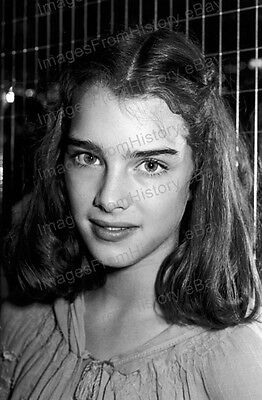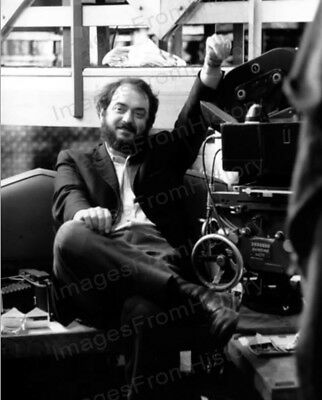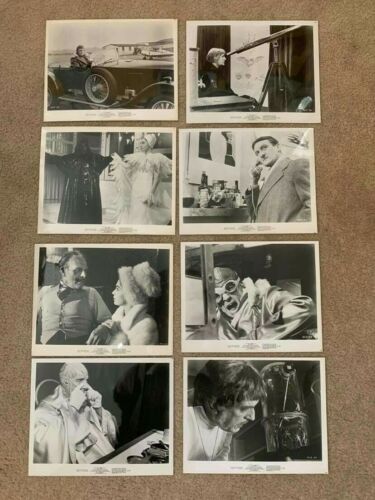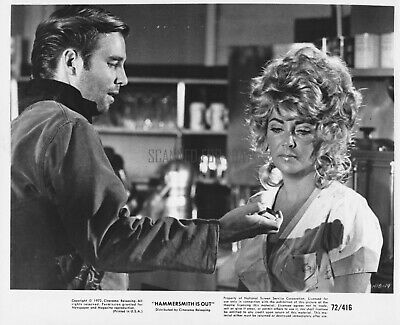-40%
Lot of 6, Jeanne Moreau, Bruno Ganz MINT stills Lumière (1976) Keith Carradine
$ 4.74
- Description
- Size Guide
Description
(They ALL look MUCH better than these pictures above. The circle with the words, “scanned for eBay, Larry41” does not appear on the actual photograph. I just placed them on this listing to protect this high quality image from being bootlegged.)Lot of 6, Jeanne Moreau, Bruno Ganz MINT stills Lumière (1976) Keith Carradine, Francine Racette, Lucia Bose, Caroline Cartier, GET SIGNED! – GET SIGNED!
This lot of approximately 8X10 photos will sell as a group. The first picture is just one of the group, please open and look at each still in this lot to measure the high value of all of them together. The circle with the words, “scanned for eBay, Larry41” does not appear on the actual photographs. I just placed them on this listing to protect these high quality images from being bootlegged. They would look great framed on display in your home theater or to add to your portfolio or scrapbook! Some dealers by my lots to break up and sell separately at classic film conventions at much higher prices than my low minimum. A worthy investment for gift giving too!
PLEASE BE PATIENT WHILE ALL PICTURES LOAD
After checking out this item please look at my other unique silent motion picture memorabilia and Hollywood film collectibles! COMBINE SHIPPING COST AND SAVE $
See a gallery of pictures of my other auctions
HERE!
These photographs are original photo chemical created pictures (vintage, from original Hollywood studio release) and not a copies or reproductions.
DESCRIPTION:
Actress Jeanne Moreau made her directorial debut with this tale about a gathering of actresses who, over the course of an all-night conversation, come to reassess their careers and romantic lives. Sarah, an actress nearing 40, has invited the woman who has been her best friend for 16 years and two younger women to her vacation retreat in Provence. There are the simple pleasures of lounging in adjacent hammocks, the sun, the food, conversations about men. This is prologue for what happened a year ago in Paris with a man Sarah has long taken for granted as a platonic friend. She had just finished a film, also finishing her liaison with the director, and was about to get an award and start work on a new film and begin a romance with a German writer.
CONDITION:
These quality vintage and original release stills are all in near MINT condition (old yes, but they look almost new). I doubt there are better condition stills on this title anywhere! Finally, they are not digital or repros. (They came from the studio to the theater during the year of release and then went into storage where the collector I bought them from kept them for over 37 years!) They are worth each but since I have recently acquired two huge collections from life long movie buffs who collected for decades… I need to offer these choice items for sale on a first come, first service basis to the highest bidder.
SHIPPING:
Domestic shipping would be FIRST CLASS and well packed in plastic, with several layers of cardboard support/protection and delivery tracking. International shipping depends on the location, and the package would weigh close to three quarters of a pound with even more extra ridge packing.
PAYMENTS:
Please pay PayPal! All of my items are unconditionally guaranteed. E-mail me with any questions you may have. This is Larry41, wishing you great movie memories and good luck…
BACKGROUND:
a compelling narrative; her attempt, a la Robert Altman, to touch upon the travails of a host of interwoven characters necessarily fragments the story, often to its detriment. Moreau herself ultimately emerges as the most sympathetic (and central) character: her story — thanks in no small part to her luminous performance — is eminently watchable, and her three love interests — played by Francois Simon (as her older “companion”), Francis Huster, and Bruno Ganz — are all perfectly cast. Unfortunately, we learn much less about either Cartier (virtually a non-presence) or Bose (a fine Italian actress whose character possesses an intriguing, though unplumbed, back story). Meanwhile, Racette primarily provides comic relief — as in the film’s most humorous scene, involving a hilarious David Carradine as a horny American who catches sight of Racette in a restaurant and tracks her down ruthlessly; this could be creepy, but Moreau wisely chooses to play it for laughs. Ultimately, Lumiere‘s fractured, imbalanced narrative prevents it from being “must see”, but Moreau’s ability to effortlessly evoke a particular milieu — one she’s intimately familiar with — makes it worth viewing at least once.
One of the most recognizable faces of the French cinema, and also one of its most celebrated, Jeanne Moreau is a legend in her own right. Combining off-kilter beauty with strong character, Moreau came to embody forthright, devil-may-care sensuality in such films as Jules and Jim and The Bride Wore Black. Comparing her to some of her best-known colleagues, Ginette Vincendeau noted, "Where Brigitte Bardot was sex and Catherine Deneuve elegance, Moreau incarnated intellectual femininity." Born in Paris on January 23, 1928, Moreau was the daughter of an English dancer and a French barman who divorced when she was eleven. Growing up in Nazi-occupied Paris, she began to discover her love of literature and the theatre, and, opposing her father's wishes, she decided to become an actress. While still a student at the Paris Conservatoire, Moreau made her stage debut at the 1947 Avignon Theatre Festival. Shortly thereafter, she was invited to join the prestigious Comédie-Française, becoming on her twentieth birthday the youngest full-time member in the company's history. She stayed with the company for four years, appearing in almost all of their productions during that time. She left in 1951, finding it too restrictive and authoritarian, and joined the more experimental Théâtre Nationale Populaire. During this time, Moreau began to take bit parts in various films, particularly B-movie melodramas. Initially not considered attractive enough to be a movie star--thanks in part to her lack of interest in make-up--she was fortunate enough to make the acquaintance of a director who found her natural attributes to be just what he was looking for: Louis Malle, who directed the actress in her breakthrough film, the New Wave murder mystery Ascenseur pour l'échafaud (Elevator to the Gallows) (1957). Following this film, Moreau remained Malle's favorite actress and off-screen lover for the next several years. The pair made headlines with their 1959 collaboration, Les Amants (The Lovers); the steamy tale of a bored housewife's extramarital affair pushed the boundaries of censorship on its U.S. release and led certain American gossip columnists to tag Moreau "the new Bardot." The actress' biggest international success was as the exuberant, free-spirited heroine of François Truffaut's Jules et Jim (1962); five years later, she worked again with Truffaut, starring as an icy murderess in the popular Hitchcock homage The Bride Wore Black (1967). Throughout the 1960s, Moreau worked with some of the cinema's most notable directors, collaborating with Peter Brooks on the 1960 Moderato Cantabile (for which she won a Best Female Performance award at the Cannes Film Festival), Michelangelo Antonioni on La Notte (1961), and Luis Buñuel on Le Journal d'une Femme de Chambre. Throughout the 1970s, 1980s and 1990s, Moreau continued to work regularly, largely forgoing Hollywood fare in favor of European films. She made some of her more notable appearances in Bertrand Blier's Les Valseuses (1974), Luc Besson's La femme Nikita (1990), and Wim Wenders' Until the End of the World (1991). She also played minor but pivotal roles in The Lover (1992), to which she lent her sandpaper-and-whisky voice as the narrator; Antonioni's Beyond the Clouds (1995), in which she appeared with Marcello Mastroianni in one of his last roles; and Ever After (1998), one of her few Hollywood outings. Linked romantically with dozens of high-profile men over the decades, Moreau was for a brief period married to Exorcist director William Friedkin. In addition to her acting pursuits, Moreau put her talents to use behind the camera, directing Lumière (1976) and L'adolescente (1979). She has also served twice as the president of the Cannes FIlm Festival jury (1975 and 1995) and has won a number of honors, including a Golden Lion for career achievement at the 1991 Venice Film Festival and a 1997 European Film Academy Lifetime Achievement Award.
Francine Racette (born 1947 in Joliette, Quebec, Canada) is a French-Canadian actress. She is the current and third wife of actor Donald Sutherland, and mother of three of his sons: actor Rossif Sutherland, actor Angus Sutherland, and Roeg Sutherland.
Crowned Miss Italy in 1947, Bose debuted in films in 1949 with Giuseppe De Santis' Non C'E Pace Tra Gli Ulivi (aka Under the Olive Tree). She went on to appear in several European films, most notably De Santis' Roma Ore (Rome 11 O'Clock), Michaelangelo Antonioni's Cronaca Di Un Amore (Story of a Love Story) and La Signora Senza Camelie (The Lady Without Camelias), and Juan Bardem's Muerta Di Un Ciclista (Death of a Cyclist). In 1956, after making Luis Bunuel's Cela S'Appelle L'Aurore, she retired from acting to marry famed bullfighter Luis-Miguel Dominguin. Bose made a cameo appearance in Jean Cocteau's Le Testament D'Orphee (The Testament of Orpheus) in 1960, but did not return to acting until the late 1960s, after her separation from Dominguin. Her notable later films include Fellini's Satyricon, Nathalie Granger, The Legend of Blood Castle, Female Butcher, and Lumiere.
Caroline Cartier (born in 1970 ) is a French journalist, reporter and radio producer. His column free Cartier, composed solely of recordings, broadcasts during the morning time slot on France Inter . It is nicknamed the "hunter sounds."
The son of actor John Carradine, Keith Carradine began his own theatrical training at Colorado State University, dropping out after one semester because he felt he wasn't getting anywhere. Soon afterward, Carradine made his stage debut in the "tribal love rock musical" Hair; his brief relationship with fellow cast member Shelley Plimpton resulted in a daughter, Martha Plimpton, who grew up to become a prominent actress in her own right. Carradine's first film was 1971's McCabe and Mrs. Miller, directed by Robert Altman. Four years later, Carradine's musical composition "I'm Easy," which he performed in Altman's Nashville (1975), won an Academy Award. Carradine divested himself of his familiar movie mannerisms in the early 1990s to portray the folksy, gum-chewing title character in the Broadway hit The Will Rogers Follies. In 1995, he emulated the past screen villainy of his father and his brother, David, as the smirking antagonist of the movie melodrama The Ties That Bind. He continued to work in film and television throughout the rest of the decade, showing up in movies like A Thousand Acres (1997) and various TV series. Meanwhile, the early 2000s found Carradine as busy as ever, with a recurring role as Wild Bill Hickock (whom he had previously played in the 1995 feature WIld Bill) on HBO's popular wild west series Deadwood, as well as roles on Dexter, Dollhouse, and Damages serving well to keep him in the public eye. Always handy with a six-shooter, Carradine took aim at some particularly nasty extraterrestrials in Iron Man director Jon Favreau's sci-fi/western genre mash-up Cowboys and Aliens in 2011.
Swiss-born actor Bruno Ganz established himself in Germany, first as co-founder of the Schaubuhne Theatre company, then as a romantic lead in films. International renown came Ganz' way when he was starred in Eric Rohmer's The Marquise of O (1976). Subsequent film roles range from Jonathan Harker in Werner Herzog's 1979 remake of Nosferatu, to misplaced angel Damiel in Wim Wenders' Wings of Desire (1987). Another of his many collaborations with director Wenders was The American Friend (1977), which Ganz regards as one of his favorite films, even though he and co-star Dennis Hopper came to blows during a spirited argument about acting technique.














